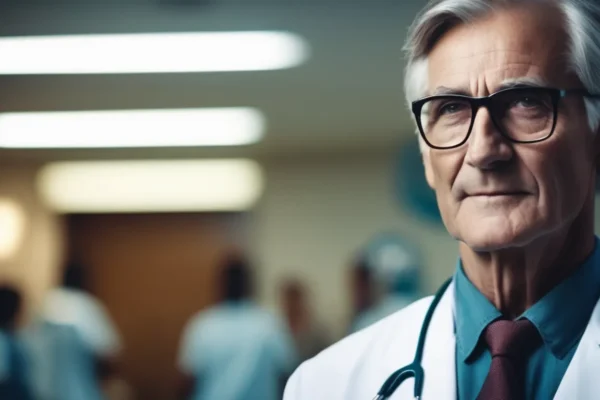When it comes to treating prostate cancer, chemotherapy is one of the most discussed options, especially in advanced stages. But what exactly is chemotherapy, and how does it work for prostate cancer? In this article, we’ll dive deep into the nitty-gritty of chemotherapy for prostate cancer, covering everything from how it works to its benefits, side effects, and what you can expect during treatment. Let’s get started.
- What is Chemotherapy for Prostate Cancer?
- When is Chemotherapy Recommended for Prostate Cancer?
- How Does Chemotherapy Work for Prostate Cancer?
- Benefits of Chemotherapy for Prostate Cancer
- Side Effects of Chemotherapy for Prostate Cancer
- What to Expect During Chemotherapy Treatment
- Tips for Managing Chemotherapy Side Effects
- The Future of Chemotherapy for Prostate Cancer
- Final Thoughts
- Studies and References on Chemotherapy for Prostate Cancer
- 1. Docetaxel and Its Role in Advanced Prostate Cancer
- 2. Cabazitaxel for Hormone-Resistant Prostate Cancer
- 3. Combining Chemotherapy with Hormone Therapy
- 4. Managing Chemotherapy Side Effects
- 5. Advances in Chemotherapy Drugs
- 6. Patient Experiences and Quality of Life
- 7. Clinical Trials and Future Directions
- 8. Nutritional Support During Chemotherapy
- 9. Psychological Support for Men Undergoing Chemotherapy
- 10. Long-Term Outcomes of Chemotherapy
- FAQs: Chemotherapy for Prostate Cancer
- Question: What is chemotherapy for prostate cancer?
- Question: When is chemotherapy recommended for prostate cancer?
- Question: What are the most common chemotherapy drugs for prostate cancer?
- Question: What are the side effects of chemotherapy for prostate cancer?
- Question: How long does chemotherapy treatment for prostate cancer last?
- Question: Can chemotherapy cure prostate cancer?
- Question: Are there alternatives to chemotherapy for prostate cancer?
- Question: How can I manage the side effects of chemotherapy?
- Question: What should I expect during chemotherapy treatment?
- Question: Are there clinical trials for chemotherapy in prostate cancer?
What is Chemotherapy for Prostate Cancer?
Chemotherapy is a type of cancer treatment that uses powerful drugs to destroy cancer cells or stop them from growing. For prostate cancer, chemotherapy is typically used when the cancer has spread beyond the prostate gland (metastasized) or when other treatments, like hormone therapy, have stopped working. It’s not usually the first line of defense but plays a crucial role in managing advanced prostate cancer.
The drugs used in chemotherapy target rapidly dividing cells, which is a hallmark of cancer. However, because these drugs can’t distinguish between cancer cells and some healthy cells (like those in your hair follicles or digestive tract), side effects are common. But don’t worry—we’ll get into that later.
When is Chemotherapy Recommended for Prostate Cancer?
Chemotherapy isn’t a one-size-fits-all treatment. It’s typically recommended in specific scenarios:
- Advanced Prostate Cancer: When cancer has spread to other parts of the body, such as the bones or lymph nodes.
- Hormone-Resistant Prostate Cancer: If the cancer no longer responds to hormone therapy, chemotherapy may be the next step.
- Before or After Other Treatments: In some cases, chemotherapy is used before surgery or radiation to shrink tumors or afterward to kill any remaining cancer cells.
Your oncologist will evaluate your specific situation, including the stage of your cancer, your overall health, and your treatment history, to determine if chemotherapy is the right choice for you.
How Does Chemotherapy Work for Prostate Cancer?
Chemotherapy drugs for prostate cancer are usually administered intravenously (through a vein) or orally (as pills). These drugs travel through your bloodstream, targeting cancer cells wherever they are in your body. This makes chemotherapy particularly effective for cancers that have spread.
Some of the most commonly used chemotherapy drugs for prostate cancer include:
- Docetaxel (Taxotere): Often the first choice for advanced prostate cancer, docetaxel has been shown to improve survival rates and reduce symptoms.
- Cabazitaxel (Jevtana): Used when docetaxel is no longer effective, cabazitaxel is another powerful option.
- Mitoxantrone: While less commonly used today, it can help relieve pain and improve quality of life in advanced cases.
These drugs are often given in cycles, with periods of treatment followed by rest to allow your body to recover.
Benefits of Chemotherapy for Prostate Cancer
Chemotherapy offers several benefits for men with advanced prostate cancer:
- Slows Cancer Growth: Chemotherapy can slow the progression of cancer, giving you more time and improving your quality of life.
- Reduces Symptoms: By shrinking tumors, chemotherapy can alleviate pain and other symptoms caused by cancer.
- Extends Survival: In some cases, chemotherapy has been shown to extend survival, especially when combined with other treatments.
While chemotherapy isn’t a cure for advanced prostate cancer, it can significantly improve outcomes and provide much-needed relief.
Side Effects of Chemotherapy for Prostate Cancer
Let’s be real—chemotherapy isn’t a walk in the park. The side effects can be tough, but they’re manageable, and your medical team will work with you to minimize them. Common side effects include:
- Fatigue: Feeling extremely tired is one of the most common side effects.
- Hair Loss: Some chemotherapy drugs can cause hair loss, but it’s usually temporary.
- Nausea and Vomiting: Anti-nausea medications can help keep this under control.
- Low Blood Cell Counts: Chemotherapy can reduce your white blood cells (increasing infection risk), red blood cells (causing anemia), and platelets (leading to bruising or bleeding).
- Nerve Damage: Some drugs, like docetaxel, can cause tingling or numbness in your hands and feet.
The good news? Most side effects are temporary and will improve once treatment ends. Plus, there are plenty of ways to manage them, from medications to lifestyle changes.
What to Expect During Chemotherapy Treatment
If you’re starting chemotherapy, here’s what you can expect:
- Preparation: Your oncologist will run tests to ensure you’re healthy enough for chemotherapy. You may also need to make lifestyle adjustments, like improving your diet or quitting smoking.
- Administration: Chemotherapy is usually given in cycles, with each cycle lasting a few weeks. You’ll have treatment sessions followed by rest periods.
- Monitoring: Your medical team will closely monitor your progress, adjusting your treatment plan as needed.
- Support: Don’t hesitate to lean on your support system—whether it’s family, friends, or a support group. They can make a world of difference.
Tips for Managing Chemotherapy Side Effects
Dealing with side effects? Here are some practical tips:
- Stay Hydrated: Drink plenty of fluids to help flush the drugs out of your system.
- Eat Well: Focus on a balanced diet to keep your energy levels up.
- Rest: Listen to your body and get plenty of rest.
- Communicate: Keep your medical team informed about any side effects you’re experiencing. They’re there to help!
The Future of Chemotherapy for Prostate Cancer
Research is ongoing to improve chemotherapy for prostate cancer. New drugs, combination therapies, and targeted treatments are being developed to increase effectiveness and reduce side effects. Clinical trials are also an option for some men, offering access to cutting-edge treatments.
Final Thoughts
Chemotherapy for prostate cancer is a powerful tool in the fight against advanced disease. While it’s not without its challenges, it can provide significant benefits, from slowing cancer growth to improving quality of life. If you’re considering chemotherapy, talk to your oncologist about what to expect and how to prepare. Remember, you’re not alone in this journey—your medical team, family, and friends are here to support you every step of the way.
Studies and References on Chemotherapy for Prostate Cancer
To provide you with the most accurate and up-to-date information, we’ve compiled a list of key studies and resources on chemotherapy for prostate cancer. These references are essential for understanding the science, effectiveness, and advancements in this treatment. Whether you’re a patient, caregiver, or just someone looking to learn more, these links will guide you to reliable and in-depth information.
1. Docetaxel and Its Role in Advanced Prostate Cancer
- Study: TAX 327 Trial
This landmark study established docetaxel as a standard chemotherapy option for men with metastatic prostate cancer. It showed significant improvements in survival rates and quality of life. - Key Findings: Docetaxel, combined with prednisone, improved median survival by 2.4 months compared to mitoxantrone.
2. Cabazitaxel for Hormone-Resistant Prostate Cancer
- Study: TROPIC Trial
This study demonstrated the effectiveness of cabazitaxel in patients who no longer responded to docetaxel. - Key Findings: Cabazitaxel improved overall survival by 2.4 months compared to mitoxantrone in men with docetaxel-resistant prostate cancer.
3. Combining Chemotherapy with Hormone Therapy
- Study: CHAARTED Trial
This trial explored the benefits of combining docetaxel with androgen deprivation therapy (ADT) in men with metastatic hormone-sensitive prostate cancer. - Key Findings: The combination therapy significantly improved overall survival, especially in men with high-volume disease.
4. Managing Chemotherapy Side Effects
- Resource: American Cancer Society – Chemotherapy for Prostate Cancer
A comprehensive guide on what to expect during chemotherapy, including tips for managing side effects like fatigue, nausea, and low blood counts.
5. Advances in Chemotherapy Drugs
- Study: CARD Trial
This study evaluated the use of cabazitaxel versus hormone therapy in men with metastatic castration-resistant prostate cancer who had previously received docetaxel and abiraterone or enzalutamide. - Key Findings: Cabazitaxel significantly improved progression-free survival and overall survival compared to hormone therapy.
6. Patient Experiences and Quality of Life
- Resource: Prostate Cancer Foundation – Chemotherapy Overview
This resource provides insights into patient experiences, including how chemotherapy impacts daily life and what to expect during treatment.
7. Clinical Trials and Future Directions
- Resource: ClinicalTrials.gov
Search for ongoing clinical trials related to chemotherapy for prostate cancer. This database provides information on new drugs, combination therapies, and innovative treatment approaches.
8. Nutritional Support During Chemotherapy
- Study: Nutritional Interventions for Prostate Cancer Patients
This study highlights the importance of nutrition in managing chemotherapy side effects and improving treatment outcomes. - Key Findings: A diet rich in fruits, vegetables, and lean proteins can help mitigate fatigue, maintain muscle mass, and support overall health during chemotherapy.
9. Psychological Support for Men Undergoing Chemotherapy
- Resource: CancerCare – Prostate Cancer Support
This organization offers free counseling, support groups, and educational resources for men undergoing chemotherapy for prostate cancer.
10. Long-Term Outcomes of Chemotherapy
- Study: Long-Term Follow-Up of Chemotherapy Patients
This study examines the long-term survival and quality of life of men who underwent chemotherapy for advanced prostate cancer. - Key Findings: Many men experience significant improvements in survival and symptom control, even years after treatment.
These studies and resources are invaluable for anyone seeking to understand chemotherapy for prostate cancer in depth. Whether you’re looking for scientific evidence, patient stories, or practical advice, these links will point you in the right direction. Remember, knowledge is power—especially when it comes to your health.
FAQs: Chemotherapy for Prostate Cancer
Question: What is chemotherapy for prostate cancer?
Chemotherapy for prostate cancer involves using powerful drugs to destroy cancer cells or stop their growth. It is typically used in advanced stages of prostate cancer or when other treatments, like hormone therapy, are no longer effective.
Question: When is chemotherapy recommended for prostate cancer?
Chemotherapy is usually recommended for advanced prostate cancer that has spread to other parts of the body, hormone-resistant prostate cancer, or as part of a combination treatment plan before or after other therapies like surgery or radiation.
Question: What are the most common chemotherapy drugs for prostate cancer?
The most commonly used chemotherapy drugs for prostate cancer include docetaxel (Taxotere), cabazitaxel (Jevtana), and mitoxantrone. These drugs are often administered in cycles to maximize effectiveness and minimize side effects.
Question: What are the side effects of chemotherapy for prostate cancer?
Common side effects include fatigue, hair loss, nausea, low blood cell counts, and nerve damage. Most side effects are temporary and can be managed with medications and lifestyle adjustments.
Question: How long does chemotherapy treatment for prostate cancer last?
Chemotherapy treatment typically involves cycles lasting a few weeks, with periods of treatment followed by rest. The total duration depends on the specific drugs used, the stage of cancer, and how well the patient responds to treatment.
Question: Can chemotherapy cure prostate cancer?
While chemotherapy is not a cure for advanced prostate cancer, it can slow the progression of the disease, reduce symptoms, and improve quality of life. In some cases, it may also extend survival.
Question: Are there alternatives to chemotherapy for prostate cancer?
Yes, alternatives include hormone therapy, radiation therapy, immunotherapy, and targeted therapy. The best treatment option depends on the stage of cancer, overall health, and individual preferences.
Question: How can I manage the side effects of chemotherapy?
To manage side effects, stay hydrated, eat a balanced diet, get plenty of rest, and communicate openly with your medical team. They can provide medications and other strategies to help alleviate discomfort.
Question: What should I expect during chemotherapy treatment?
During chemotherapy, you’ll undergo regular treatment sessions, often in cycles, with rest periods in between. Your medical team will monitor your progress and adjust the treatment plan as needed to ensure the best possible outcomes.
Question: Are there clinical trials for chemotherapy in prostate cancer?
Yes, there are ongoing clinical trials exploring new chemotherapy drugs, combination therapies, and innovative treatment approaches. Participating in a clinical trial may provide access to cutting-edge treatments.
Disclaimer: This article is for informational purposes only and should not be considered medical advice. Always consult with a qualified healthcare professional before making decisions about your health.





